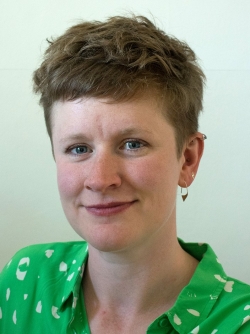
by Isla McIntosh, Manager of the CAS Strong Communities team.
This article was first published i the Herald on 17 June 2023.
For many of us the idea of ‘human rights’ might seem a bit abstract. When you’ve got bills to pay, mouths to feed, worries about your health, your job, your home… what have human rights got to do with it?
But these are some of the biggest issues people bring to the Citizens Advice network in Scotland. Staff and volunteers across the network are working hard, giving advice and support to put money in people's pockets and make them aware of their rights. This in turn helps people fill their fridges and keep the power on; keep their tenancies, challenge unfair treatment, and speak up when things go wrong.
Advisers in Citizens Advice Bureaux might not think they are human rights defenders, and clients might not think their problems are human rights issues. But this is what human rights work looks like.
We all have the right to an adequate standard of living - including food and decent housing. We have a right to fair work and education; we have the right to health and a healthy environment.
When clients come to the CAB network for help with bills, social security, housing, employment, healthcare, or any other issue, advisers support them to understand their rights, responsibilities and what they’re entitled to. Our network empowers people through information, tools, and support to advocate for themselves, take action, and claim those rights.
Every client helps us understand and shine a light on the systemic problems that are getting in the way of people’s day to day human rights. These insights across the network then help us advocate for the changes needed to make rights a reality for everyone in Scotland.
Now there’s a game-changer on the horizon. There’s a new Human Rights Bill coming that will incorporate major human rights treaties into Scots law and, crucially, make them enforceable in Scottish society.
That means rights to food, adequate housing, health, work, education (economic social and cultural rights, as they’re known) as well as rights for women and girls, rights for disabled people, and rights around race equality – will all be built into Scots law. Public authorities will have a duty to uphold these rights in the services they deliver, and there will be a legal basis to take action when this falls short.
Communities and civil society have been calling for this new law not to sit on a shelf, but to be a tool for real change in people’s lives - a way to hold those in power accountable for meeting their human rights duties.
Scotland’s CAB network is already driving progress on a daily basis, to realise human rights for people in Scotland. It is crucial this new law is shaped by the people that need it most, and the communities and organisations already advocating for human rights in practice. We need to push for accountability so that the new law is properly implemented in practice; and that it challenges power-holders to keep progressing human rights in all that they do.
Meanwhile, if you think you’re having trouble accessing your human rights - whether it's in housing, food, education, fair work, or a decent standard of living - your local CAB, with their teams of human rights defenders - are there to help!